New York (CNN Business)Volkswagen and Ford announced plans Friday to work closely to develop electric- and self-driving vehicles, the latest automakers to partner in the face of massive changes rocking the auto industry.
Read more on their website.
New York (CNN Business)Volkswagen and Ford announced plans Friday to work closely to develop electric- and self-driving vehicles, the latest automakers to partner in the face of massive changes rocking the auto industry.
Read more on their website.
Mohamad Shatanawi from Jordan is studying at the Faculty for years. Now he tells you why to choose the Faculty of Transportation Engineering and Vehicle Engineering here at the Budapest University of Technology and Economics!
Ford is building a new plant in Michigan for autonomous vehicles as the company realigns some
factories to focus on its future lineup of self-driving and electric cars.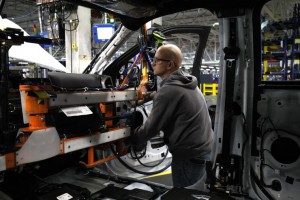
The new facility, scheduled to open in the next two years, will take new commercial-grade hybrid models and incorporate the self-driving technology needed to turn them into autonomous vehicles. Ford is still considering where to build the AV finishing center and has not said how many people will work there.
Source of article and image: www.cnbc.com
Read more on their website.
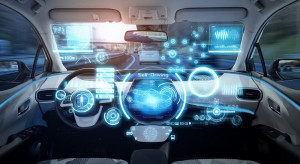 Research on autonomous cars has received a boost from the European Parliament, but the technology still raises many questions. Can it be safe and ethical? Will it totally eliminate the need for human drivers? And, of course: when will this happen?
Research on autonomous cars has received a boost from the European Parliament, but the technology still raises many questions. Can it be safe and ethical? Will it totally eliminate the need for human drivers? And, of course: when will this happen?
A public consultation on robotics and Artificial Intelligence consultation coordinated in 2017 by the European Parliament covered, among other things, also autonomous vehicles. Based on the results of this consultation autonomous vehicles have been identified as a policy area requiring most urgent action.
German-owned automotive industry supplier Continental AG opened its Deep Machine Learning Competence Center in Budapest on Thursday.
Key factors in selecting the location of the centre included the availability of AI experts, a sound environment for the automotive industry and a proper infrastructure, Jens Bruening, head of the centre, said.
László Palkovics, Hungary’s minister of innovation and technology, said the choice was also motivated by trust between Continental and the Hungarian government.
Source of article and image: dailynewshungary.com
Read more on their website.
Hakan Başargan PhD student, researcher came to us from Turkey for his MSc studies. Since then, he has been working in the Research Center for Autonomous Road Vehicles
He is especially interested in AI based fault tolerant trajectory planning and tracking control.
In this video Hakan tells us about how he heard about us and what is his opinion about the Faculty of Transportation Engineering and Vehicle Engineering!
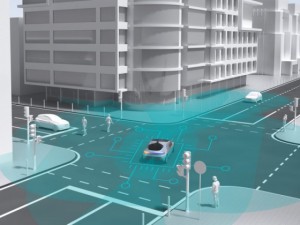 LG Electronics (LG) and Microsoft entered into a memorandum of understanding to enhance and further grow LG’s autonomous vehicle and infotainment system business. Under the terms of the partnership, LG will accelerate the transformation of its existing digital platform for the vehicle industry, seen as key growth engines for the company, by leveraging Microsoft’s Azure cloud and artificial intelligence technologies along with LG’s future self-driving software.
LG Electronics (LG) and Microsoft entered into a memorandum of understanding to enhance and further grow LG’s autonomous vehicle and infotainment system business. Under the terms of the partnership, LG will accelerate the transformation of its existing digital platform for the vehicle industry, seen as key growth engines for the company, by leveraging Microsoft’s Azure cloud and artificial intelligence technologies along with LG’s future self-driving software.
LG will apply Microsoft’s AI knowhow to its Advanced Driver Assistance Systems (ADAS), Driver-Status Monitoring Camera (DSM) and Multi-Purpose Front Camera products and incorporate Microsoft’s Virtual Assistant Solution Accelerator in LG’s infotainment systems. And with Azure Data Box service, data captured on the road can be uploaded automatically to create a library that helps the self-driving software grow even smarter.
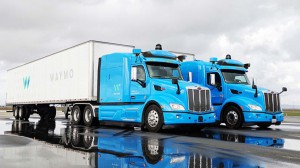 The car company NEVS and the technology form Phantom Auto are to collaborate on autonomous vehicle technology, specifically in working on designs to help make vehicles safer.
The car company NEVS and the technology form Phantom Auto are to collaborate on autonomous vehicle technology, specifically in working on designs to help make vehicles safer.
NEVS is a leading Swedish electric vehicle manufacturer (and formerly Saab Automobile), is working on its own autonomous vehicle. A decision has been taken to use Phantom Auto’s teleoperation safety technology. This is with a view to manufacturing a safe electric autonomous vehicle.
(more…)
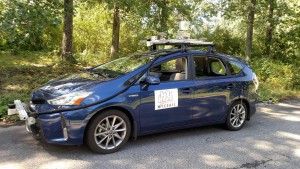 Taking the road less traveled is extremely difficult for self-driving cars. Autonomous vehicles rely on highly visible lane markings, as well as detailed 3D maps in order to navigate their environment safely. Which is why most of the major companies have eschewed testing on unmapped rural roads in favor of suburbs and cities.
Taking the road less traveled is extremely difficult for self-driving cars. Autonomous vehicles rely on highly visible lane markings, as well as detailed 3D maps in order to navigate their environment safely. Which is why most of the major companies have eschewed testing on unmapped rural roads in favor of suburbs and cities.
Researchers at MIT’s Computer Science and Artificial Intelligence Laboratory (CSAIL) have developed a new system that allows self-driving cars to drive on roads they’ve never been on before without 3D maps. Called MapLite, the system combines simple GPS data that you’d find on Google Maps with a series of sensors that observe the road conditions.
Leading the charge on self-driving trucks is TuSimple, a company with dual headquarters in Beijing, China, and in San Diego, California, plus a testing facility in Tucson, Arizona. TuSimple has identified port terminal tractors as an ideal first application for autonomous vehicles.